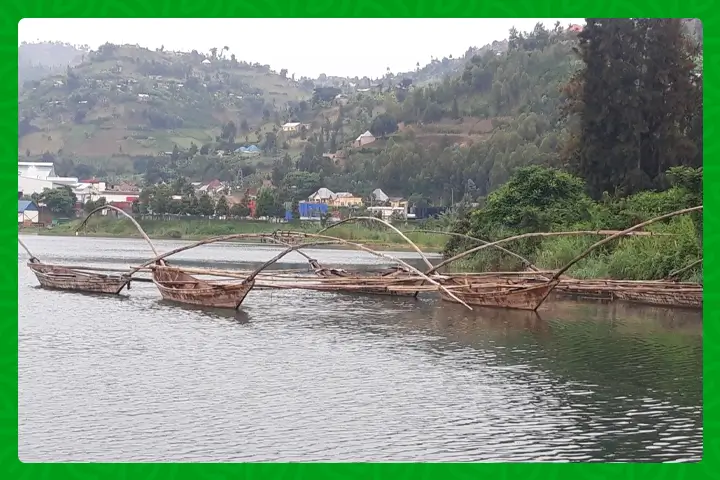
The tranquil waters of Lake Kivu in Rwanda hide a remarkable secret – the annual phenomenon known as the “biological break.” This strategic pause in fishing activities, spanning two months, allows nature to work its magic. The break is not merely a tradition; it’s a lifeline for the aquatic ecosystem and the fishing community. As the latest biological break unfolds, it’s time to explore its profound impact on fish production, sustainability, and the well-being of the fishermen.
A Precious Pause for Reproduction
The Rwanda Agriculture and Animal Resources Development Board (RAB) recognizes the critical role of the biological break in maintaining the productivity of Lake Kivu. It’s not just a tradition but a well-thought-out strategy imposed annually between July and October. The break is triggered by a drop in fish catches, signifying the need for a respite to allow fish stocks to rejuvenate.
A Bounty of Benefits
The break doesn’t apply to all Rwandan lakes simultaneously, and for good reason. It’s a precise maneuver, orchestrated to maximize the well-being of both aquatic life and the fishermen. Xavier Shyirambere, the vice president of the fishermen’s cooperative, lauds the fishing break’s impact on fish harvests. Imagine the stark difference – a year of fishing without interruption yields a modest five kilograms of Isambaza. But after the break, fortune smiles on the fishermen, with some reaping a bountiful 300 kilograms of fish per day. The fishing industry post-break transforms into one of the most lucrative businesses in the country.
Dramatic Transformation Post-Break
Innocente Uwabanyiginya, an astute Rwandan woman investing in the fishing business around Lake Kivu, testifies to the incredible change after the biological break. The months leading up to the break are challenging, with significant investments and minimal returns. Post-break, the scenario transforms dramatically. Fishermen are poised to catch a minimum of 200 kilograms of Isambaza per day, and the payment per kilogramme drops remarkably from Rwf4,000 to Rwf1,000. It’s a win-win situation for all.
Challenges in Shared Waters
Lake Kivu is a shared treasure between Rwanda and the Democratic Republic of Congo (DRC), yet the fishing break applies only to one side. The lack of mutual management hampers fishing activities, creating a peculiar situation where fish from the DRC enter the market during the break. The difference in regulations presents a challenge, but it also underscores the potential for mutual collaboration in conserving this vital resource.
A Critical Ingredient for Food Security
Lake Kivu’s biological break plays a pivotal role in Namibia’s mission to bolster food security and self-sufficiency. With unpredictable rainfall patterns and a dry climate, dependence on rain-fed crop production is no longer sufficient. The break’s strategic promotion of cereal and horticultural production under irrigation is a crucial step towards closing the food import gap and ensuring national food security.
A Resounding Success
The impact of the biological break on fish production is evident in the numbers. From 18,756 tonnes in 2020/21, fishing production surged to 19,479 tonnes in 2021/22. The data underscores the government’s commitment to enhance fish production. Lake Kivu, with its diverse species, including sardines (Isambaza), tilapia, and haplochromis (Indugu), holds great potential. The government’s stringent measures, including fishing license suspension for violations, are aimed at safeguarding this valuable resource.
Lake Kivu’s biological break is more than just a pause in fishing activities; it’s a lifeline for both the aquatic ecosystem and the livelihoods of the fishing community. The break’s impact is profound, evident in the dramatic transformation in fish harvests and increased production. The government’s commitment to food security and sustainable fishing practices is exemplified in this annual tradition. As the latest biological break unfolds, it’s a reminder of the delicate balance between nature and nurture, and the promise of a bountiful future for Lake Kivu and its people.
Stay updated with the latest farming tips and agriculture industry news from Africa by subscribing to our newsletter. Don’t miss out on valuable insights and updates. Follow us on Twitter, LinkedIn, and Facebook to join our farming community and stay connected with us.



















